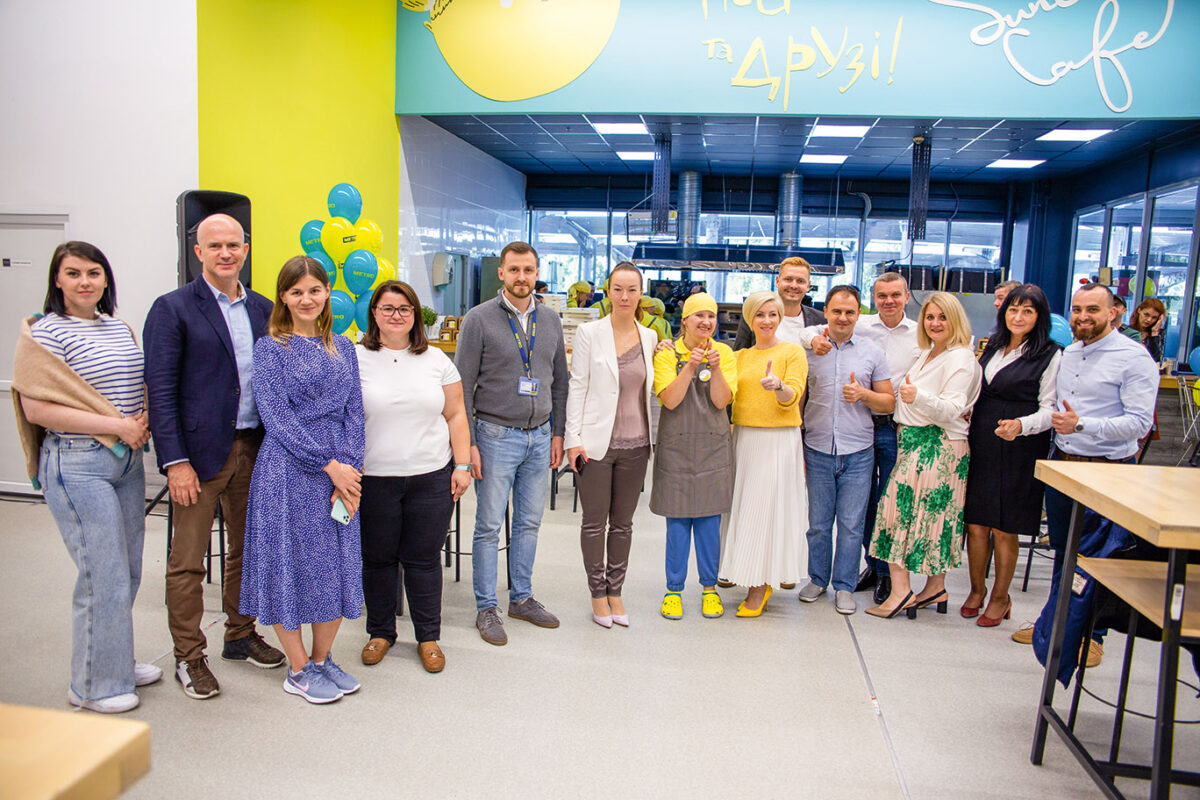How do you prepare your company for the shock of a full-scale invasion by a military superpower? This is not the kind of management task you will find taught at most business schools or addressed in the average MBA textbook, but it is a situation Ukrainian executives like Metro Ukraine CEO Olena Vdovychenko are all too familiar with.
Looking back at the past year-and-a-half since the start of Russia’s invasion, Vdovychenko says this wartime experience has left her convinced that having an engaged and empowered team is absolutely crucial. “I am very thankful that we have always prioritized empowerment within our company,” she reflects. “In a crisis situation, you need to delegate as much authority as possible to local team members who are on the spot, so they can adapt to the situation and find the solutions that are best for the company and best for your customers. Empowered people can do impossible things.”
Like everyone else in Ukraine, Vdovychenko was well aware of the looming security threat hanging over the country in early 2022, and had developed a number of contingency plans for the nationwide network of Metro Ukraine stores and the company’s more than 3000 Ukrainian staff. However, she admits to having been stunned by the sheer magnitude of Russia’s full-scale invasion. The initial focus when the invasion began on February 24, 2022, was on evacuating employees and family members to safety from front line regions. Metro stores across Ukraine were temporarily shuttered, with the company instead providing humanitarian support to local authorities and joining forces with partners to help feed defense forces.
Helping feed Ukraine
Vdovychenko and her colleagues then began holding anti-crisis video conferences twice a day and quickly recognized the key role the company had to play in supporting Ukraine. “We understood that people need to eat,” says Vdovychenko. Stores were reopened wherever possible, while humanitarian efforts continued. These store reopenings have been an ongoing process as the front lines of the war have fluctuated and as regions of Ukraine have been liberated from Russian occupation. Of the 26 Metro stores operating in prewar Ukraine, 24 were once more open for business by midsummer 2023.
The unique circumstances of the full-scale Russian invasion created a range of challenges that have required a mix of ingenuity and adaptability from Vdovychenko and her team. She recounts how in the early days of the war, she found herself with delivery vehicles but with no drivers or fuel. This problem was solved by identifying nearby companies with fuel and drivers but no vehicles. “At the time, we were all looking to support each other, even if we were not necessarily well acquainted before the outbreak of the war. Everyone recognized that it was in the interests of all Ukrainians to cooperate.”
Logistical challenges
Keeping the national network of Metro Ukraine stores supplied has required considerable logistical creativity. Vdovychenko says the large size of Metro stores meant that they were among the last in Ukraine to still have products on the shelves in spring 2022. Nevertheless, within a month or two of the invasion, stock levels had fallen to around 50%. “There was disruption at every stage of the supply chain, from the sourcing of products to infrastructure and delivery. Our suppliers had also been impacted, with many production sites physically destroyed or cut off in occupied territory,” says Vdovychenko.
One solution was to switch from the preferred Metro Ukraine policy of national sourcing partners toward cooperation with local suppliers, with individual stores working to source key items in their immediate neighborhoods. The Russian naval blockade of Ukraine’s Black Sea ports also prevented imports from reaching Metro Ukraine stores via Odesa. Instead, alternative routes were identified, with imports arriving in Romanian Black Sea port city Constanta and other seaports before being brought to Ukraine by truck. As a result of these innovative and improvised approaches to supply and delivery issues, Metro Ukraine stores were approximately 95% stocked by mid-July 2023.
New safety standards
Vdovychenko is understandably proud of her team’s performance and points to a number of positive economic indicators. At the same time, she acknowledges that steering a large company through the harrowing experience of a major military conflict is about much more than simply remaining economically viable.
The safety of employees and customers is paramount, with regulations introduced by Metro Ukraine mandating the closure and evacuation of stores during air raid alarms. In instances where suitable bomb shelters are not located close to stores, buses have been hired by the company to transport people to the nearest shelters. A pilot scheme is currently underway to construct a purpose-built bomb shelter for staff and customers at a Metro store in Kharkiv. If the finished shelter is approved by the Ukrainian authorities, Vdovychenko says the initiative will then be implemented at Metro stores across the country.
Communication is key
Beyond immediate issues of physical safety, Metro Ukraine has also been focused on the psychological well-being of employees. Support has included the launch of a hot line service offering one-on-one professional support and guidance for staff struggling with the emotional burden of the war. Vdovychenko stresses the importance of an effective internal communications strategy within companies that find themselves faced with wartime conditions in order to safeguard mental health and channel emotions in a constructive direction. She says it has been particularly beneficial to identify a clear goal for the Metro Ukraine team of supporting the economic front and fulfilling the company’s humanitarian mission.
Most of all, Vdovychenko advocates openness to all team members and maximum transparency. “You must never be afraid to show your emotions because you are also human and this is absolutely normal. Yes, I am also scared. Yes, I don’t necessarily know what tomorrow will bring. But we are together now, and together we will make tomorrow better.”
About the interviewee: Olena Vdovychenko is CEO of Metro Ukraine.
